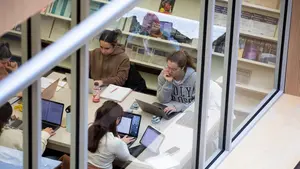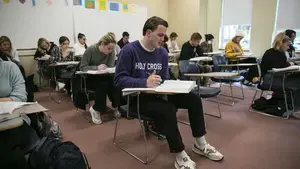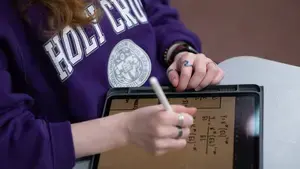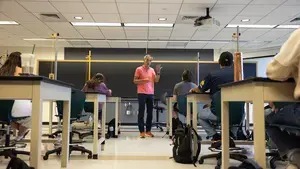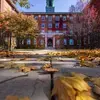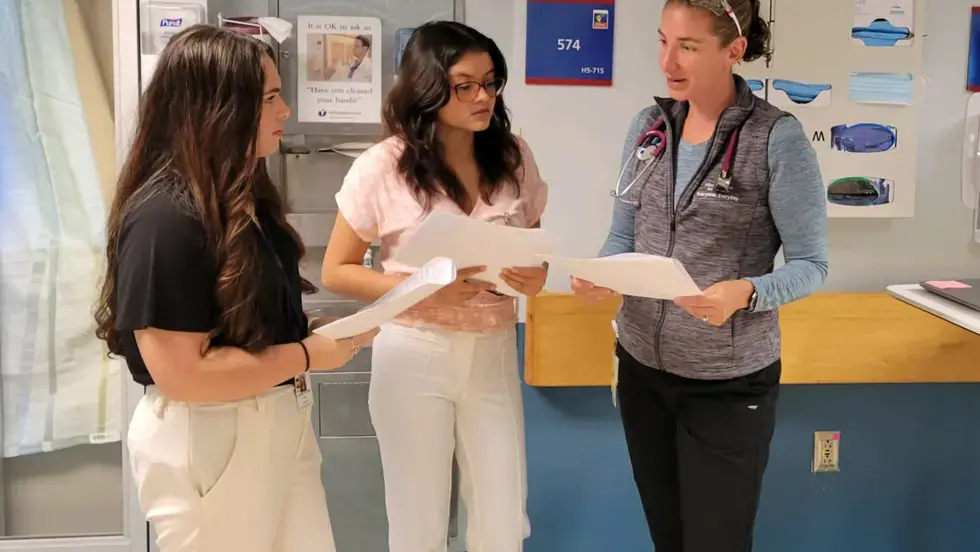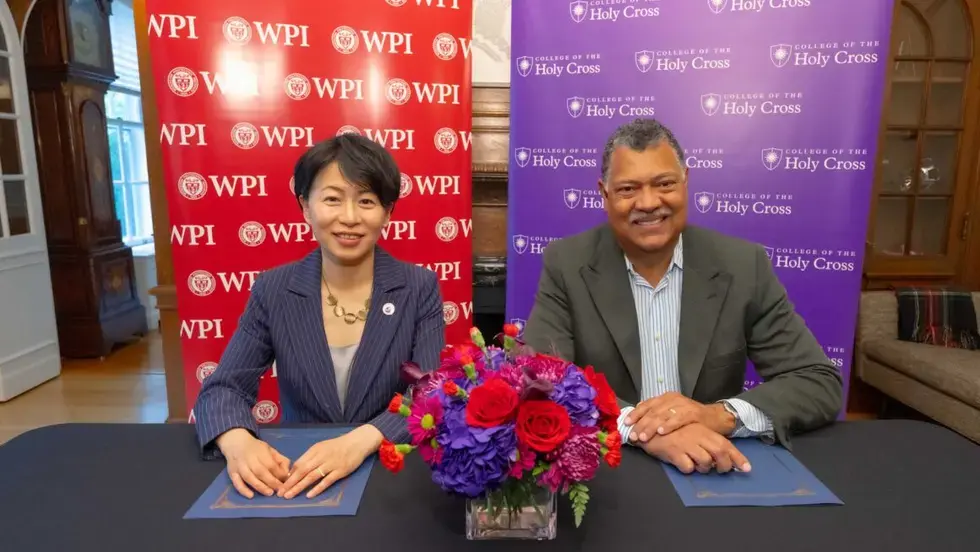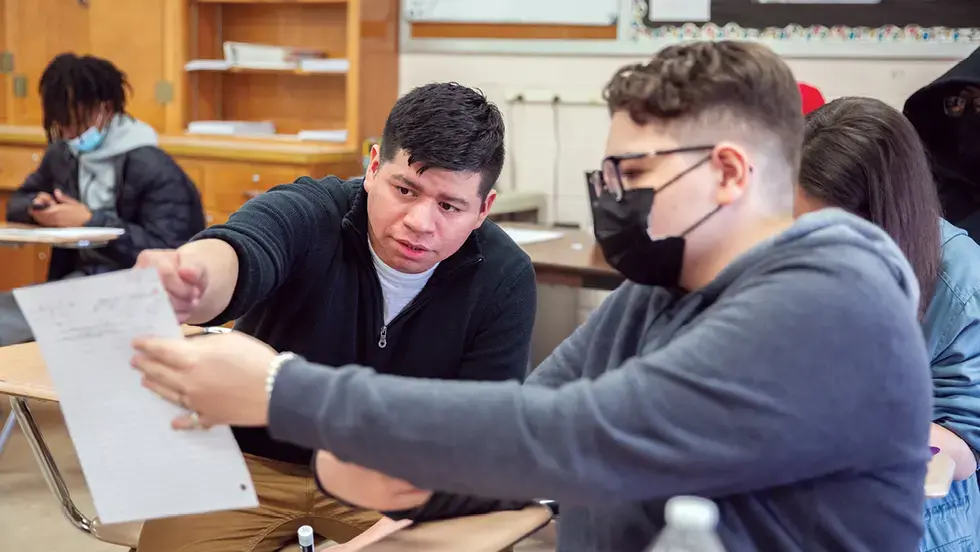
Mathematics & Computer Science
Through rigorous study and a liberal arts approach, our computer science, mathematics and statistics programs equip students with the habits needed for lifelong learning, clear thinking and meaningful engagement in society.
We seek to provide a welcoming community that helps students from a variety of backgrounds learn how to communicate effectively, think and work independently, as well as collaboratively with their peers. Through the mathematics, computer science and statistics curriculum at Holy Cross, students become active participants in the study of fundamental and dynamic areas of human endeavor.
Courses of Study
Computer Science: Major, Minor
In the Computer Science program at Holy Cross, students gain an education that offers breadth across computer science and depth in areas of interest. Students learn much more than computer programming — they apply computational ideas to solve problems, examine ethical issues at the intersection of computing and society and study the theoretical and practical limits of computation.
Mathematics: Major
The mathematics major at Holy Cross reflects a liberal arts perspective of delving beyond the simple understanding of subject matter to understanding why it matters.
Statistics: Minor
Our statistics minor teaches a way of thinking that identifies patterns in data and draws inferences from those patterns. We focus on developing students’ understanding of how and why statistical techniques work as well as developing skill in applying them in modern software packages.
Graduate Opportunity
The 3-2 Engineering Program with Columbia University or the Collaborative Accelerated Master’s Program with Worcester Polytechnic Institute provide the opportunity to combine the study of mathematics with training in engineering.
Both engineering programs are open to students of all majors and class years. Advisors offer one-on-one guidance to connect you to the resources and tools that will enable you to achieve your individual career goals.
Meet the Department Chair
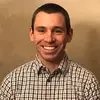
Outcomes
A major in computer science is excellent preparation for a wide variety of careers, including finance, actuarial work, teaching, software engineering and consulting. Current students in the computer science program cite their studies as helping them to learn how to think. Graduates of the program have gone on to a variety of career paths, including:
- Full-time employment at small start-ups and established tech companies
- Full-time service and non-profit opportunities, such as AmeriCorps or the Jesuit Volunteer Corps
